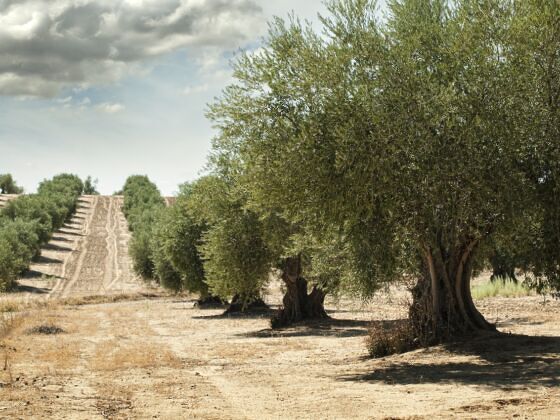Nobody warns you about the olive dust.
It falls in a mist with each shake of the branches, spurts and sneezes with each blast of the chainsaw. Leafy limbs fall onto the net-covered ground. Olive dust settles on my skin, my hair, my boots. I clutch a branch and swipe my hand down its length. A spattering of olives falls onto the net. Grip, tug, repeat. Wrestle with the big branches, the dense growths and clusters of fruit. They look like grapes. Dusty grapes.
